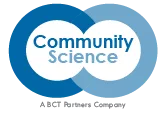Brandi Gilbert, Ph.D., Senior Associate, has extensive experience in community resilience, particularly around helping children and families prepare for and respond to chronic and acute stressors. Her focus includes understanding and building the capacity of youth, particularly youth of color, to help them make their communities more resilient.
Brandi has led projects that focus on strengthening disaster response and bolstering community resilience. She has also overseen studies on the impact of COVID-19 on communities and how to strengthen philanthropic grantmaking to support recovery efforts. Her previous work at the Urban Institute included an evaluation of the Rockefeller Foundation’s 100 Resilient Cities program, a study examining federally funded post-disaster housing recovery efforts, and an assessment of disaster preparedness across community-based organizations in the Midwest.
At Community Science, she led a study that is a part of Robert Wood Johnson Foundation’s Integrative Action for Resilience Initiative, focusing on intergenerational leadership training youth and adults to address stressors that are most pressing in their community in Duck Hill, MS. Other notable clients include Margaret A. Cargill Philanthropies, Save the Children, the W. K. Kellogg Foundation, the Kaiser Family Foundation, Corporation for National and Community Service, and Children International. She has had a range of national leadership positions with the American Evaluation Association, including currently the Co-director of its Graduate Education Diversity Internship Program.
Brandi is passionate about youth agency and leadership to drive community change.
Education
- Ph.D., Sociology, University of Colorado
- B.A., Elementary Education, University of Delaware
Expertise
- Equitable Community Development
- Organizational Effectiveness
- Powerful Citizenry
- Youth Leadership and Engagement
Notable Publications and Presentations
- “CDBG-DR Housing Recovery: Challenges, Best Practices, Lessons Learned, and Recommendations.” 2019. Written for the U.S. Department of Housing and Urban Development. [Primary Author]
- “Evidence-Based Strategies to End Childhood Food Insecurity and Hunger in Vermont.” 2019. Written for the National Life Group Foundation. [Primary Author]
- Gilbert, B. (November 2018). Applying a Culturally Responsive Evaluation Framework- Bridging Theory and Practice. American Evaluation Association Conference, Cleveland, OH.
- Gilbert, B. (July 2018). Plan for Justice: Transforming the Disaster Recovery Environment. Annual Hazards Research and Applications Workshop, Boulder, CO.
- “Rental Housing for a 21st Century Rural America.” 2018. Written for the US Department of Agriculture. [Primary Author]
- Gilbert, B. (July 2017). Big Lights, Big Cities, Big Plans for Disaster Resilience. Annual Hazards Research and Applications Workshop, Boulder, CO.
- Lee, K. & Gilbert, B. (2014). Embedding the Graduate Education Diversity Internship within a Larger System. New Directions for Evaluation, 143: 97-108.
- Ritchie, L., Tierney, K., & Gilbert, B. (2010). Disaster Preparedness among Community-Based Organizations in the City and County of San Francisco: Serving the Most Vulnerable. Pp 3-39 in Community Disaster Recovery and Resiliency: Exploring Global Opportunities and Challenges, Edited by D. S. Miller and J.D Rivera.
- Engel, K., Jordan, A., Gilbert, B., & Ritchie, L. (2010). Putting Disaster and Emergency Management Evaluation in the Dutch Context: Learning from International Experience. (In Dutch). Magazine of Crisis Management and National Security, September 2010.
Past Exemplary Projects
- Deputy Director, Improving the Speed of Housing Recovery Program Launch after Severe Disaster, 2017-2019. Assessed delays and challenges in post-disaster housing recovery through mixed methods analysis, including multivariate statistical analysis of administrative data from Community Development Block Grant Disaster Recovery Program (CDBG-DR) and in-person site visits to three regions with large-scale disasters.
- Deputy Director, Disrupting Food Insecurity at Its Roots, 2017-2019. Led research study examining key indicators that drive food insecurity (e.g. economic conditions, health disparities, and transportation considerations), sharing data and conducting interviews and focus groups with community stakeholders in six U.S.-based sites.
- Project Director, Save the Children Journey of Hope Evaluation, 2018. Led quasi-experimental design evaluation using complex sampling methodology—to assess a middle school curriculum to support post-disaster coping after Hurricane Harvey.
- Deputy Evaluation Director, Corporation for National and Community Service Retired Senior Volunteer Program, 2015. Managed data collection for multi-site evaluation with five site visits — to examine lessons learned from local disaster preparedness, response, and recovery efforts.
- Evaluation Team Member, Kaiser Foundation Port Towns Community Health Partnership, 2014- 2015. Managed data collection and analysis to assess systems change efforts to improve healthy eating and active living through a place-based effort in the Port Towns Communities, MD.

